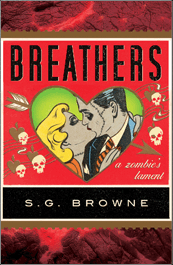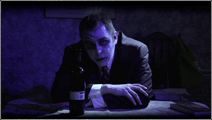 I’ve been asked a lot about a sequel for Breathers.
I’ve been asked a lot about a sequel for Breathers.
Am I writing one? Did I plan on one? When will the next one come out?
To be honest, I never intended to write a sequel to Breathers or to turn it into a series. First, I already had ideas for several novels after this one. Second, I didn’t want to be pigeonholed as a zombie author (not that there’s anything wrong with that) and be limited to that genre for my writing life. And third, the original ending for Breathers was much darker than the one that made it into print. No ambiguity. No hope. No chance of a sequel.
So while I prescribe to the concept of never say never, at the moment I don’t have any plans for a sequel to Breathers. If I can come up with an original idea that isn’t derivative of the original material and doesn’t tread over a lot of common ground, then maybe. But I have a hard time believing that a sequel would be better than the original.
Which brings me to the topic of this post…
It’s been rare that I’ve enjoyed any sequel or any second or third installment of a series as much as I enjoyed the original. Most of the time, they failed miserably to live up to the expectations of the first installment.
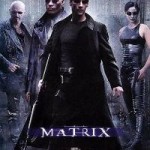
The Matrix. Star Wars. Indiana Jones.
I can watch the original Matrix over and over, but the sequels? Yawn. I thought The Empire Strikes Back was a lot of fun, but it ended like a serial, which pissed me off, even as a teenager when I saw it at the theater. Return of the Jedi was a little silly and the three prequels lacked any heart. And while The Last Crusade rivaled Raiders of the Lost Ark, the other two Indiana Jones films, especially the last one, bordered on being unwatchable.
Some other random sequels:
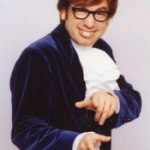 Airplane II had some wonderful moments but wasn’t nearly as funny as the original. Goldmember helped to redeem the Austin Powers series after The Spy Who Shagged Me, but still couldn’t measure up to the first of the bunch. And Men in Black II was such a huge disappointment that I often forget it was ever made.
Airplane II had some wonderful moments but wasn’t nearly as funny as the original. Goldmember helped to redeem the Austin Powers series after The Spy Who Shagged Me, but still couldn’t measure up to the first of the bunch. And Men in Black II was such a huge disappointment that I often forget it was ever made.
And don’t even get me started on the Rocky series. Clubber Lang? Dolph Lungren? Please.
On the flip side, I loved the Alien trilogy, (though I’m trying to expunge Alien Resurrection from my brain). Yes, I even enjoyed Alien 3. 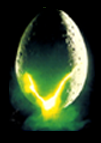 The Road Warrior was a worthy sequel to Mad Max, but Beyond the Thunderdome was a bit of a blight on the series. I thought The Dark Knight was an excellent film on its own, perhaps even better than Batman Begins (Heath Ledger’s portrayal of The Joker is worth multiple viewings). The only problem was the fact that Christian Bale started growling halfway through the film. None of the children of Tim Burton’s Batman were as good as their father.
The Road Warrior was a worthy sequel to Mad Max, but Beyond the Thunderdome was a bit of a blight on the series. I thought The Dark Knight was an excellent film on its own, perhaps even better than Batman Begins (Heath Ledger’s portrayal of The Joker is worth multiple viewings). The only problem was the fact that Christian Bale started growling halfway through the film. None of the children of Tim Burton’s Batman were as good as their father.
The Lord of the Rings trilogy was a fun ride all the way through, though admittedly I’d never read Tolkien’s version so when the first film ended without an ending, I let out a groan along with most of the rest of the theater audience. The Bourne Ultimatum was an improvement over The Bourne Supremacy and arguably better than The Bourne Identity. And while Godfather III was an average film, The Godfather II was a worthy, and some will say better, follow-up to The Godfather. I’d say “it’s hard to argue with a Best Picture Oscar,” but Titanic won out over L.A. Confidential in 1997 and Dances With Wolves beat out Goodfellas in 1990, so I can’t use that criteria as justification.
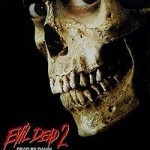 Oh, and my vote for the best sequel based on how much an improvement they were on their originals? It’s a tie. Evil Dead 2 and Terminator 2.
Oh, and my vote for the best sequel based on how much an improvement they were on their originals? It’s a tie. Evil Dead 2 and Terminator 2.
Obviously, I’m leaving out a lot of series and sequels, including Star Trek, the James Bond franchise, Rambo, Friday the 13th, American Pie (I thought American Wedding was the funniest of the bunch), Hellboy, Die Hard, and Pirates of the Caribbean (the second and third installments weren’t nearly as good as the first).
And yes, since we’re here, I can’t forget the Romero Films, but other than the original Dawn of the Dead, I 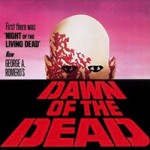 don’t think the last three in the series hold up to NOTLD.
don’t think the last three in the series hold up to NOTLD.
Admittedly, I haven’t read as many series or sequels as I’ve seen on film. I think part of this is that, when I do a search for the Best Book Series of All Time, most of the lists I come across are filled with YA titles like Lemony Snicket, The Chronicles of Narnia, and The Golden Compass.
While I did read the first Harry Potter and the first installment of Twilight (I’m of the opinion that Edward’s a psychotic stalker and that vampires should never sparkle). Although I know a lot of adults loved both series, they’re YA novels and I’m not exactly the target audience, so I didn’t feel a desire to continue.
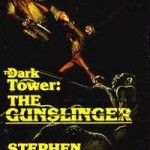 While I’m sure there are sequels and series out there for adult readers, the only series I have read all the way through is Stephen King’s The Dark Tower saga, which I thought peaked with the fourth installment, Wizard and Glass. After that, I felt it sort of wound its way down rather than building up to the end.
While I’m sure there are sequels and series out there for adult readers, the only series I have read all the way through is Stephen King’s The Dark Tower saga, which I thought peaked with the fourth installment, Wizard and Glass. After that, I felt it sort of wound its way down rather than building up to the end.
And in case you’re wondering, no, I still haven’t read The Hitchhiker’s Guide to the Galaxy.
So what the hell does all of this rambling and listing accomplish other than to share my own personal tastes? It says that I’m dubious of sequels to stand up to the originals. Most of the time, they just don’t cut it, so going back to the original question about a sequel, the only way I will write one is if I think it will hold up to Breathers.
So what are your thoughts? On a sequel to Breathers? On the films and books I’ve listed? On the films and books I haven’t listed? On sequels and series in general?
 (Author’s Note: While I realize in my previous post that the color Yellow mentioned how Red was a man, he was mistaken. As I started writing this, it became apparent that Red is indeed a woman. So I apologize for any confusion or lack of continuity.)
(Author’s Note: While I realize in my previous post that the color Yellow mentioned how Red was a man, he was mistaken. As I started writing this, it became apparent that Red is indeed a woman. So I apologize for any confusion or lack of continuity.)





